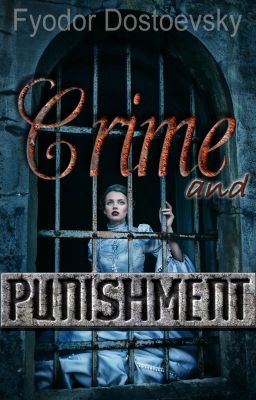↳ VARIOUS LITERATURE ─ classics
6 stories
EdgarAllanPoe
- Reads 19,074
- Votes 1,706
- Parts 1
"Annabel Lee" is the last complete poem composed by American author Edgar Allan Poe. Like many of Poe's poems, it explores the theme of the death of a beautiful woman.
Cover by: @KatrinHollister
FydorDostoevsky
- Reads 97,777
- Votes 2,372
- Parts 42
Crime and Punishment is a novel by the Russian author Fyodor Dostoevsky. It was first published in the literary journal 'The Russian Messenger' in twelve monthly installments during 1866. Later, it was published in a single volume. It is the second of Dostoevsky's full-length novels following his return from 5 years of exile in Siberia. Crime and Punishment is considered the first great novel of his "mature" period of writing.
Crime and Punishment focuses on the mental anguish and moral dilemmas of Rodion Raskolnikov, an impoverished ex-student in Saint Petersburg who formulates a plan to kill an unscrupulous pawnbroker for her money. Before the killing, Raskolnikov believes that with the money he could liberate himself from poverty and go on to perform great deeds; but confusion, hesitation, and chance muddy his plan for a morally justifiable killing.
Cover made by the amazing Amber @The3dreamers.
FydorDostoevsky
- Reads 19,868
- Votes 607
- Parts 22
Notes from Underground, also translated as Notes from the Underground or Letters from the Underworld, is an 1864 novella by Fyodor Dostoyevsky. Notes is considered by many to be one of the first existentialist novels. It presents itself as an excerpt from the rambling memoirs of a bitter, isolated, unnamed narrator (generally referred to by critics as the Underground Man) who is a retired civil servant living in St. Petersburg. The first part of the story is told in monologue form, or the underground man's diary, and attacks emerging Western philosophy, especially Nikolay Chernyshevsky's What Is to Be Done?
The second part of the book is called "Apropos of the Wet Snow" and describes certain events that appear to be destroying and sometimes renewing the underground man, who acts as a first person, unreliable narrator and anti-hero
FydorDostoevsky
- Reads 23,611
- Votes 786
- Parts 96
The Brothers Karamazov, also translated as The Karamazov Brothers, is the final novel by the Russian author Fyodor Dostoevsky. Dostoevsky spent nearly two years writing The Brothers Karamazov, which was published as a serial in The Russian Messenger from January 1879 to November 1880.
The Brothers Karamazov is a passionate philosophical novel set in 19th-century Russia, that enters deeply into the ethical debates of God, free will, and morality. It is a spiritual drama of moral struggles concerning faith, doubt, judgment, and reason, set against a modernizing Russia, with a plot which revolves around the subject of patricide. Dostoevsky composed much of the novel in Staraya Russa, which inspired the main setting. Since its publication, it has been acclaimed as one of the supreme achievements in world literature.
EdgarAllanPoe
- Reads 7,370
- Votes 498
- Parts 1
"The Bells" is a heavily onomatopoeic poem by Edgar Allan Poe which was not published until after his death in 1849. It is perhaps best known for the diacopic use of the word "bells." The poem has four parts to it; each part becomes darker and darker as the poem progresses from "the jingling and the tinkling" of the bells in part 1 to the "moaning and the groaning" of the bells in part 4.
Cover by: @CaffeinatedKiwi
EdgarAllanPoe
- Reads 21,735
- Votes 1,102
- Parts 1
"The Tell-Tale Heart" is a short story by American writer Edgar Allan Poe, first published in 1843. It is relayed by an unnamed narrator who endeavors to convince the reader of his sanity while simultaneously describing a murder he committed. The victim was an old man with a filmy "vulture-eye", as the narrator calls it. The narrator emphasizes the careful calculation of the murder, and he hides the body by dismembering it, and hiding it under the floorboards. Ultimately, the narrator's feelings of guilt, or a mental disturbance, result in him hearing a thumping sound, which he interprets as the dead man's beating heart.
Cover by the lovely @FayLane.





